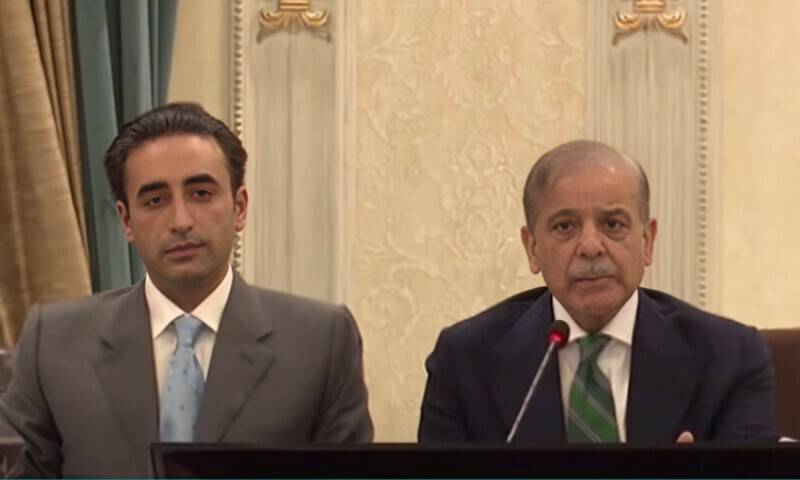Govt halts controversial canal project amid PPP pressure

Stay tuned with 24 News HD Android App

The federal government Thursday suspended all progress on the contentious multi-billion-rupee canal project launched under the Green Pakistan Initiative, following fierce opposition from the Pakistan People’s Party (PPP), mass protests in Sindh, and rising regional tensions after India unilaterally suspended the Indus Waters Treaty (IWT).
The announcement was made by Prime Minister Shehbaz Sharif during a joint press conference with PPP Chairman Bilawal Bhutto-Zardari, where the premier confirmed that no new canal will be constructed unless consensus is reached at the Council of Common Interests (CCI), scheduled to meet on May 2.
“Today, we decided in the meeting between the PPP and PML-N with mutual agreement that until a decision is reached with mutual consensus in the CCI, no further canal will be constructed and the federal government has decided that there will be no further progress on canals without the consensus of opinion among provinces.”
The decision marks a major political breakthrough after weeks of tense negotiations between the PPP and the ruling Pakistan Muslim League-Nawaz (PML-N). Sources said the PML-N accepted all of PPP’s demands during high-stakes talks, with the PPP repeatedly warning of quitting the coalition government over the issue.
The controversial canal project, originally inaugurated in February by Chief of Army Staff General Asim Munir and Punjab Chief Minister Maryam Nawaz in Cholistan, aimed to irrigate southern Punjab. However, it triggered widespread unrest, particularly in Sindh, which accused the federal government of violating provincial water rights. The Sindh Assembly had unanimously passed a resolution against the project in March.
As protests spread across Sindh—reaching cities like Sukkur, Nawabshah, and Daharki—political heat rose in Islamabad. The Senate witnessed chaos earlier this week, with PPP senators staging a walkout and clashing with PTI lawmakers over rival resolutions related to the canal plan.
Amidst the domestic political storm, India’s unprecedented move to suspend the IWT further complicated the scenario. The Modi-led government cited “cross-border linkages” to a recent attack in occupied Kashmir as justification, though no evidence was provided. The development raised alarms in Pakistan about future water diplomacy and regional stability.
“The water rights of provinces are enshrined in the 1991 Water Accord and the 2018 National Water Policy,” Shehbaz said, adding that a joint committee of federal and provincial representatives will be formed to resolve the crisis and devise long-term solutions for agricultural policy and water management.
Bilawal welcomed the decision, thanking the prime minister for engaging meaningfully and addressing the PPP’s and Sindh’s concerns. “Without consensus, no new canals will be dug—this is a win for democracy and provincial rights,” he said.
He said the prime minister had largely addressed the complaints of those protesting against the government’s policy and expressed hope that the CCI meeting would endorse the decision of no new canal construction without mutual agreement.
“We are not taking any decision today, but only affirming that without a consensus, new canals will not be made. I am looking forward to the CCI meeting.”
Bilawal strongly condemned India’s announcements, particularly regarding the IWT, and said they were not only illegal but “against humanity”. “We will stand together with you and raise Pakistan’s case not only on the streets but the international level and will give a befitting response to India’s decision,” the former foreign minister said.
The PPP chairman thanked the premier for their agreement today and said he looked forward to continuing to work with him.
With India closing diplomatic doors and domestic alliances on edge, the government now faces a complex balancing act—rebuilding trust at home while navigating a historic regional challenge to Pakistan’s water security.
